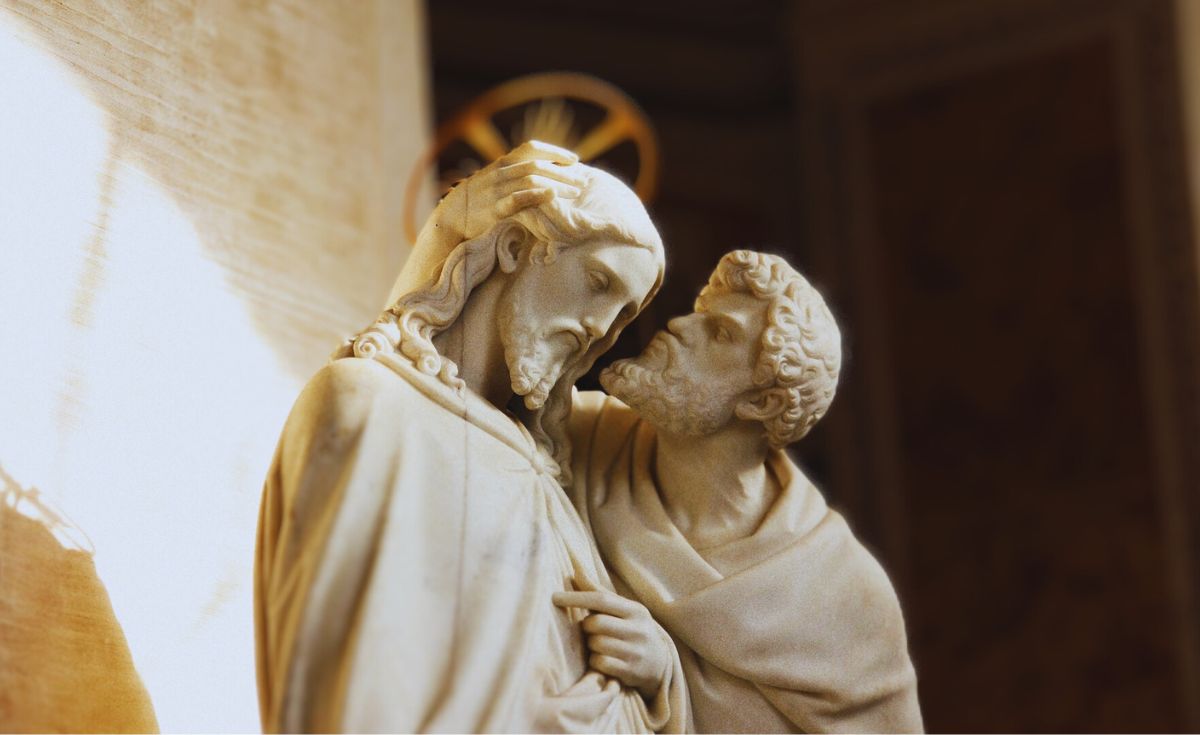
Lessons from the Most Notorious Traitors in History
Embarking on a riveting exploration of historical narratives, this journey delves into the captivating tales of three notorious traitors. We will uncover the unique contexts that molded their actions, leaving an indelible mark on the human narrative. First, we encounter Brutus, navigating the intricate landscape of noble motives within the political realm. Following his trail, we immerse ourselves in the story of Judas, a figure whose betrayal surpasses religious confines, resonating universally. Lastly, the narrative of Ephialtes, interwoven with the Battle of Thermopylae, imparts insights into the repercussions of leadership oversights. Join me in unraveling the layers of historical betrayal, discovering the intricate threads weaving these narratives across time and civilizations. Through these infamous traitors, we gain glimpses into timeless lessons etched in the complex fabric of human history, offering profound insights into the enduring complexities of human nature.
Brutus
Brutus’ well-intended assassination of Julius Caesar, driven by noble motives, unfolds as a cautionary tale in the annals of history. The subsequent ascent of Octavian highlights the unforeseen consequences that can arise from honorable intentions. A contemporary resonance echoes in the 2022 “අරගලය” (The Struggle) where mass protests against the authoritative leadership of Gotabaya Rajapakse inadvertently ushered in the autocratic rule, of Ranil Wickremasinghe. Much like Brutus’ tragic betrayal, the impassioned quest for justice by protesters set the stage for an unexpected outcome, revealing the delicate balance needed in political transitions. The haunting parallels between Caesar’s betrayal and the post “අරගලය” events underscore the imperative of understanding the potential repercussions of justice-seeking. This historical recurrence emphasizes the need for nuanced approaches to navigate political complexities, as real-world scenarios echo Shakespeare’s drama, urging vigilance to prevent unintended outcomes conflicting with initial noble aspirations.
Judas
Judas, a figure transcending religious narratives, has become a household name, even among atheists, due to the universal resonance of betrayal in his story. His notoriety extends beyond theological boundaries, embodying a timeless cautionary tale about the consequences of treachery. The enduring intrigue surrounding Judas lies in the archetypal nature of betrayal, a theme that resonates universally in human experience. Regardless of one’s religious stance, the lesson from Judas is clear: betrayal, driven by personal gain or misplaced priorities, leaves an indelible mark on both history and individual conscience. His tale compels reflection on the potential irreversibility of actions taken in pursuit of fleeting objectives, urging us to prioritize principles over transient desires. In contemplating Judas, atheists and believers alike find a shared lesson on the profound impact of betrayal and the imperative of guarding moral integrity.
Ephialtes
Leonidas’ interaction with Ephialtes at the Battle of Thermopylae offers profound leadership insights. Ephialtes, a loyal Greek, sought to join the Spartans despite physical limitations. However, Leonidas unintentionally offended him, leading to Ephialtes defecting to the Persians. The lesson here is clear: leaders must adeptly navigate individual strengths and weaknesses, fostering inclusion without diminishing morale. Leonidas could have assigned Ephialtes a non-combat role, emphasizing the value of diverse contributions to the mission. This mistake underscores the importance of leaders balancing practical considerations with empathy, ensuring each team member feels valued. Recognizing and adapting to individual capabilities creates a more cohesive and resilient team, preventing potential allies from becoming adversaries. Leonidas’ oversight with Ephialtes serves as a timeless reminder of the delicate art of leadership and the impact of considering each member’s unique contribution.
Wrap Up
In tracing the threads of betrayal, leadership, and justice through the lives of Brutus, Judas, and Ephialtes, we uncover a tapestry of lessons echoing through time. Each traitor, in their unique context, mirrors the complexities of human nature and the delicate balance required in political and moral landscapes. The cautionary tales of unintended consequences, profound impacts, and leadership oversights weave a narrative that transcends historical boundaries. As we conclude this exploration, the resonance of these stories remains palpable, urging reflection on the enduring wisdom etched into the human experience. Through the lens of these infamous figures, we are reminded that history is not just a record of events but a repository of invaluable insights, urging us to navigate our own complexities with empathy, wisdom, and a vigilant awareness of the consequences our actions may unfold.
If you found this content helpful, I kindly ask you to leave your feedback in the comments section below. Sharing it on social media would also be greatly appreciated. In order to promote meaningful and respectful dialogue, I request that you use your full name when commenting. Please note that any comments containing profanity, name-calling, or a disrespectful tone will be deleted. Thank you for your understanding and participation.




